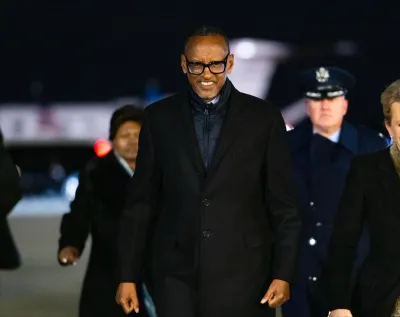
Instead of expanding cabinet to accommodate everyone, expand opportunities for the people!
Mr. President, we welcome some of the statements you have repeatedly emphasised lately; the need to regulate the economy, the need to pull the 68% (actually 69%) of Ugandans who are in subsistence into the formal economy, the need to protect the environment, and the need to fight corruption. You have also stressed the need to reduce imports as well as to invest in innovation.
You sound the only Ugandan believing and committed to the goal of achieving middle income status by 2020. This is not surprising. You have always had personal dreams, visions, and aspirations. You have achieved some, while many have remained just that — dreams.
My intention today is not to delineate your achieved and unachieved dreams; I set out, building on what I wrote in these pages last week, to highlight for you some of the realities you must face if we were to achieve these beautiful goals you have set for your new government and the country.
Mr. President, you love to state how our country, under your leadership, has solved most of the bottlenecks that used to impede its progress such as bad governance, narrow private sector, poor human resource development, poor infrastructure, markets, and industries, as well as democracy.
You harbor the idea that now there is nothing that will stop us from achieving the middle income status. This is exactly where I want to start from. You seem to be reading from a wrong page of the prerequisites for achieving middle income status. You also seem to possess some wrong facts about the country you are leading.
Listen to science, not Nadduli
Let us start with the last. Mr. President, although your government has made some progress on some of the issues you mentioned above as “solved bottlenecks,” we still have a very long way to go on many of them — governance, human resource development, infrastructure, democracy, private sector etc.
Apart from those, we have serious issues with our high population growth rate, high level of unemployment, low growth of the economy, and the large informal sector. A country is categorised by the World Bank as a middle income country when the income per capita is $1,000
Specifically, a low middle income country should have a per capita income in excess of $1,045 (about Shs.3.5 million) per annum, but below $4,126 (Shs.13.8 million). Although this seems a very low income in real terms at which a very large fraction of our population would still be below the absolute poverty level of $1.9/day, achieving it will be a daunting task for Uganda.
Yet it would be very easy had attended to some simple fundamentals. Mr. President, you need to hear this; Uganda actually would be a middle income country right now had it not been for your obsession with some things — things that by the mid-20th century the world had come to realise they were wrong.
One of those things is your obsession with a large population. For years you have been encouraging people to “produce more children. You choose to listen more to your friends like Hajj. Nadduli (no wonder you’ve appointed him minister), instead of listening to science.
Control population growth
Just two years ago, you told Ugandans, “Family planning is not about population control and a big population is not the problem. The problem is lack of economic growth and the resultant lack of adequate health and education facilities coupled with poor development infrastructure, unemployment which is the major problem as it affects the quality of population that the country produces.”
Hardly three months ago, on the occasion to launch the 2014 National Population Census results you added, “A big population is important for our quest for socio-economic transformation set out in Vision 2040. Population growth is a strategic contribution to the regional common market of 160 million people.”
This was the thinking of the 19th and first half of the 20th century when thought used to be guided by common sense. In psychology, they have a concept, “false-consensus effect” — a cognitive bias whereby someone tends to overestimate the extent to which their opinions, beliefs, preferences, values, and habits are normal and typical of those of others.
In my view Uganda is suffering currently from two related tragedies; the tragedy of common sense and the tragedy of the commons. The former is related to the concept I’ve explained above. The tragedy of commons, on the other hand, is brought about by our personal incentives to behave uncooperatively which causes disaster for everyone — the “Me versus Us” problem.
True story of China
In Uganda we started the graduation process from the “Us versus Them” to the “Me versus Us” about a decade ago. Generally we no longer care enough about people who are not like us. If we did, we wouldn’t encourage things like large families. They destroyed our traditional society; they are destroying would be successful families even today.
Mr. President, you seem to make one same mistake that is actually common among many people make. You confuse population growth rate with growth in actual numbers. Mr. President, what economists and demographers are asking of your government is simple; control the rate at which the population is growing (i.e. the number of children that every woman produces) and concentrate on raising the quality of the few children that people produce such that they don’t die. That way, the absolute number of people will increase without putting a burden to those who have to look after them.
You cite examples of China and India — two of the most populous countries in the world with respectively 1.3 and 1.2 billion people — as evidence that high population growth or a large population does not necessarily stop a country from developing. This is another mistake.
China’s annual population growth has averaged 0.6% in the last two decades. That of India has averaged 1.2% in the same period. We all know what happened in China in the 1950s and 1960s when her population was growing at higher rate — an average of 2.8%.
Mao Zedong, the man who suffered the same “tragedy of common sense”, encouraged people in China to produce more children. This led to a serious reversal of fortunes in China. Between 20 and 43 million Chinese died of famine and deprivation in the 3 years, 1959 – 1961. Imagine the entire Ugandan population (35 million) plus Rwanda (12 million) dying, all in three years!
Stop confusing the peasants
Mr. President, rapid population growth is the single biggest problem that has failed many of your government’s goals. Many things which your government is being accused of were caused by the population explosion — environmental degradation, poor education and health services, high rural household poverty, etc.
Thanks to your confused strategy, we have failed to complete the demographic transition. We have one of the lowest death rates among poorest countries; but also one of the highest birth rates in the world. Your message of a large population is confusing the peasants.
People in Uganda are still producing children for ‘security reasons’; “Let me produce 8 children, four might die and I remain with four.” Yet globally the human race is escaping death thanks to immunisation and primary healthcare delivery. Thus, all the eight children survive and now cause a serious dependency problem that hampers the household’s capacity to create wealth. This by extension has impeded our progress towards middle income status.
Mr. President, had we controlled population growth, beginning in the 1990s, we would be a middle income country now. Ghana attained the middle income status in 2010 when their (revised) GDP hit the USD 30 billion mark. With Ghana’s population at 24 million, this worked out to a per capita income of about USD 1,225 per year.
Our own GDP is currently at USD 27 billion (produced by about 5 million people). We are about 35 million people. This means that our current income per capita is about US$ 700, if we ignored the (subjective) adjustments by statisticians at UBOS that put it at US$ 820.
Don’t invest in observables
Now, had Uganda kept her population growth rate at less than the 3.2% it has been growing in the last 2 decades — for example, had we reduced it to 2% per year — our population would now be about 24 million. At the current GDP, we would be enjoying an annual per capita income of $1,125. We would be a middle income country.
Mr. President, continuing with my last week’s advice, you need to stop your obsession with big numbers — big population, big cabinet, big parliament, big army, big police force, big budget, literally big everything!
Your vision should be consistent with the aspirations, opportunities, and genius of the people of Uganda. At the moment you seem to have lost those three important ingredients of the people you want to move to the middle income status. You even seem to have lost their love.
Work on the simple things that will your big dreams realised. Don’t invest in observables (roads, bridges, dams, classrooms, Centre IVs, airports). Invest in the young people’s outputs, particularly their skill base to enable them to become productive.
Invest in the successful local investors to expand and create more jobs. Invest in innovation to expand opportunities for the thousands of creative young people whose talents are being squandered away on social media and in malls selling Chinese products.
Instead of expanding cabinet to accommodate everyone, expand opportunities for the people. Invest in the activities that will pull more people into money economy. Put money in building agro-industrial centres across the country to reduce post-harvest losses. Regulate the agricultural value chain to save Ugandan farmers from the “tyranny of middlemen.” Title the 80%+ of the untitled land to protect peasants from expropriation.














Ramathan Ggoobi
Ramathan Ggoobi is Policy Analyst, and Researcher. He lecturers economics at Makerere University Business School (MUBS) and has co-authored several studies on Uganda's economy. For the past ten years, he has published a weekly column 'Are You Listening Mr. President' in The Sunrise Newspaper, Uganda's Leading Weekly
Leave a Comment
Your email address will not be published.